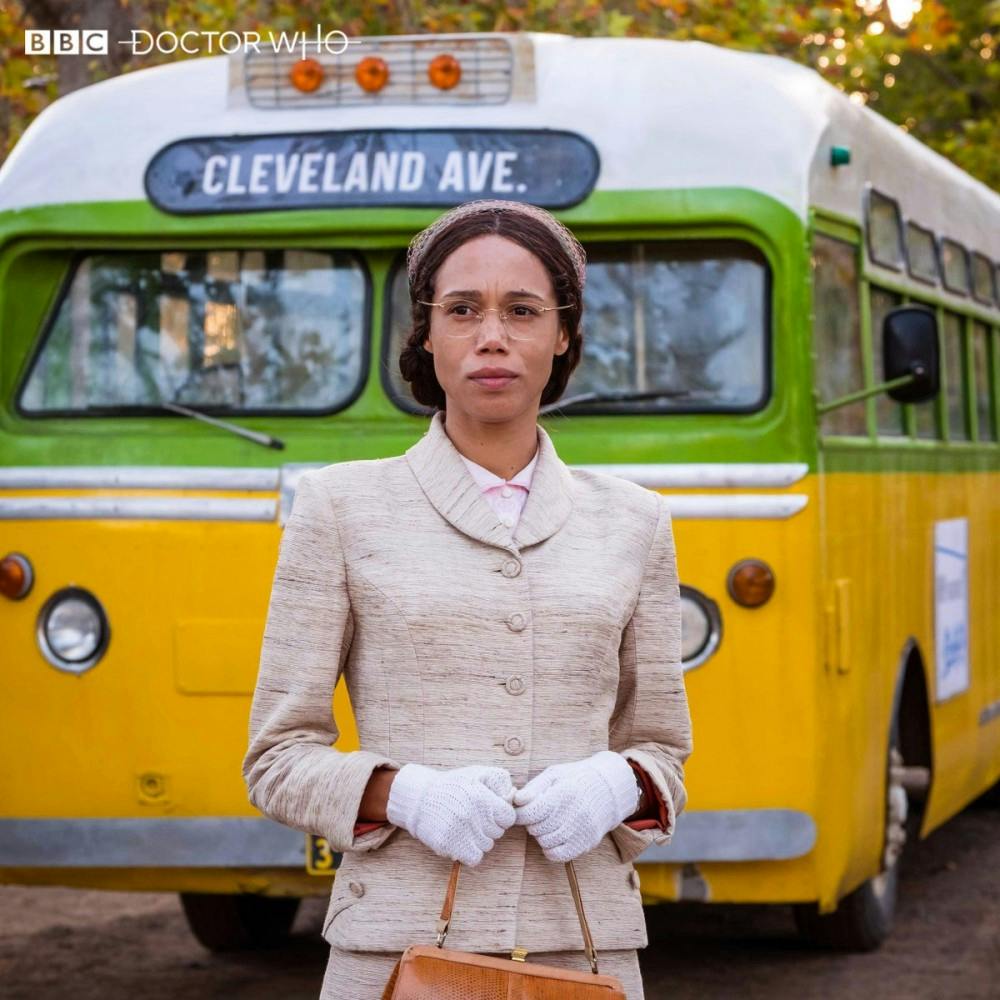After a fun but awkwardly paced premiere and a follow-up that failed to provide any real stakes, Doctor Who’s third episode, “Rosa,” is finally what makes the new Doctor stand out on her own.
Set in 1955 — one day before Rosa Parks was famously arrested for not giving up her seat to a white passenger — the Doctor (Jodie Whittaker) and crew make an erroneous landing while trying to get back to present-day Earth. Instead, they find their way into a plot involving a gripping mystery for the first half, a hilarious and refreshingly nonviolent struggle for the second, and a thoughtful piece of social commentary throughout.
Doctor Who has often skirted around the subject of racism when companions of color have visited historically racist locations, and it even more rarely has tackled the subject in-depth. However, “Rosa” does not pull any punches, literally.
Within the first few minutes in Montgomery during 1955, Ryan (Tosin Cole), a person of color, is abruptly slapped by a white man simply for placing his hand on his arm. Throughout the episode, Ryan and Yaz (Mandip Gill), a Pakistani woman derisively mistaken for a Mexican during the episode, must cope with exploring a world that doesn’t accept them. They also attempt to make it abundantly clear that they’re no stranger to racism in their own times, even if it’s less blatant. It’s a compelling setting for the entire core cast, one that draws out their characters better than either previous episode.
Vinette Robinson performs flawlessly as Rosa Parks, a key component of the episode’s conflict. Just like the real historical figure, Robinson is unwavering in her composure, collected yet unmistakably intense in her convictions. The entire setting matches Parks’ painstaking recreation, as each member of the cast, location and even the music evokes the essence of the 1955 U.S., in all its beauty and ugliness.
Equally gripping is the episode’s villain, Krasko (Josh Bowman), a mass murderer from the far future who is now physically unable to harm others. Due to this he travels back in time to undo the civil rights movement by indirect means. Emanating the same discriminatory hatred from modern hate groups, Krasko is a dire admission that racism will never completely die out, but is always something to be fought against.
Krasko also draws some of the most ire we’ve seen yet from Whittaker’s take on the Doctor, and while we still haven’t seen pure fury, she makes it abundantly clear that the Doctor is still not one to mess with.
Despite being set in the 1950s, Sunday’s episode of Doctor Who has social commentary pertinent to the modern day. “Rosa” is able to tell a powerful and cohesive story not about the Doctor changing history, but of ensuring that others, such as Rosa Parks, are able to.
Doctor Who airs Sundays at 8 p.m. on BBC America.






